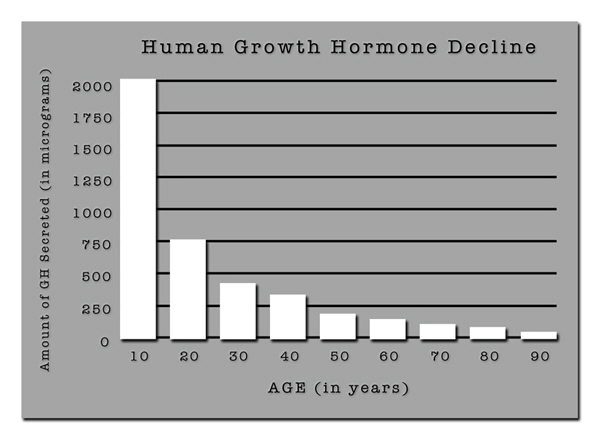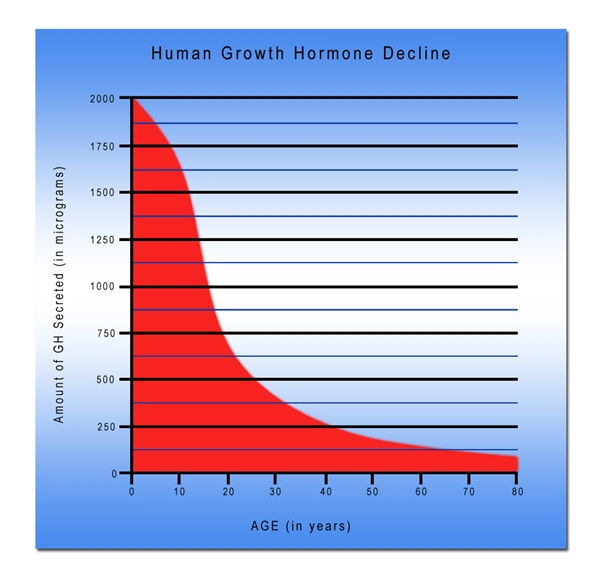Introduction to Andropause
Andropause, often referred to as male menopause, is a term used to describe the gradual decline in testosterone levels in aging men. Unlike the more abrupt changes experienced by women during menopause, andropause is a slow and often insidious process that can go unnoticed until significant symptoms manifest. Understanding andropause is crucial for American men, as it can affect their quality of life, relationships, and overall health.
Symptoms and Recognition
The symptoms of andropause can be subtle and may be mistaken for other conditions. Common signs include decreased libido, erectile dysfunction, fatigue, loss of muscle mass, increased body fat, mood swings, and depression. These symptoms can significantly impact a man's life, leading to decreased self-esteem and strained personal relationships. It's essential for men to recognize these signs and seek medical advice, as early intervention can improve outcomes.
Hormonal Changes and Diagnosis
Andropause is primarily driven by a decline in testosterone, the hormone responsible for male sexual development and secondary sexual characteristics. As men age, testosterone production decreases by about 1% per year after the age of 30. This decline can be measured through blood tests, which are crucial for diagnosing andropause. Physicians may also assess other hormone levels, such as estrogen and luteinizing hormone, to get a comprehensive picture of a patient's hormonal health.
Impact on Physical Health
The physical effects of andropause extend beyond sexual health. Low testosterone levels can lead to reduced bone density, increasing the risk of osteoporosis. Muscle mass and strength may decline, which can affect physical performance and increase the risk of injury. Additionally, changes in body composition, such as increased abdominal fat, can elevate the risk of cardiovascular diseases and diabetes. American men should be aware of these risks and take proactive steps to manage their health.
Psychological and Emotional Effects
Andropause can also have profound psychological and emotional effects. Men may experience mood swings, irritability, and depression, which can strain relationships and impact mental well-being. The societal expectation for men to remain stoic and strong can make it challenging to seek help, exacerbating these issues. It's important for men to recognize that seeking support for mental health is a sign of strength, not weakness.
Treatment Options
Treatment for andropause varies depending on the severity of symptoms and individual health needs. Hormone replacement therapy (HRT) is a common approach, involving the administration of testosterone to restore levels to a more youthful state. This can help alleviate symptoms and improve quality of life. However, HRT is not suitable for everyone, and potential side effects and risks must be carefully considered. Lifestyle changes, such as regular exercise, a balanced diet, and stress management, can also play a significant role in managing andropause symptoms.
Lifestyle and Preventive Measures
Preventive measures can help mitigate the effects of andropause. Regular physical activity, particularly strength training, can help maintain muscle mass and bone density. A diet rich in nutrients, including vitamins and minerals essential for testosterone production, can support hormonal health. Managing stress through mindfulness, meditation, or therapy can also improve overall well-being. American men should prioritize these lifestyle factors to enhance their health as they age.
The Importance of Open Dialogue
Open dialogue about andropause is crucial for breaking down stigma and encouraging men to seek help. Conversations with healthcare providers, partners, and peers can foster a supportive environment where men feel comfortable discussing their symptoms and exploring treatment options. By normalizing these discussions, we can improve the overall health and well-being of American men experiencing andropause.
Conclusion
Andropause is a natural part of aging that can significantly impact American men's lives. By understanding its symptoms, seeking timely medical advice, and adopting a holistic approach to health, men can navigate this transition with confidence. Embracing open dialogue and support systems will empower men to maintain their quality of life and enjoy their later years to the fullest.

- Understanding Andropause: Symptoms, Impact, and Management Strategies for American Men [Last Updated On: February 18th, 2025] [Originally Added On: February 18th, 2025]
- Andropause: Debunking Myths and Understanding Realities for American Men's Health [Last Updated On: March 16th, 2025] [Originally Added On: March 16th, 2025]
- Andropause and Prostate Health: Understanding the Link and Managing Risks in American Males [Last Updated On: March 17th, 2025] [Originally Added On: March 17th, 2025]
- Supplements for Andropause: Enhancing American Men's Health and Vitality [Last Updated On: March 18th, 2025] [Originally Added On: March 18th, 2025]
- Navigating Andropause: Emotional Symptoms and Support Strategies for American Men [Last Updated On: March 19th, 2025] [Originally Added On: March 19th, 2025]
- Managing Andropause: Diet, Exercise, Stress, Sleep, and Regular Check-ups for American Men [Last Updated On: March 19th, 2025] [Originally Added On: March 19th, 2025]
- Andropause and Cognitive Health: Strategies for American Men to Maintain Mental Sharpness [Last Updated On: March 19th, 2025] [Originally Added On: March 19th, 2025]
- Andropause: Understanding Male Menopause and Embracing Life Changes [Last Updated On: March 21st, 2025] [Originally Added On: March 21st, 2025]
- Andropause in American Males: Understanding and Managing Diabetes Risk [Last Updated On: March 21st, 2025] [Originally Added On: March 21st, 2025]
- Managing Andropause: Symptoms, Medical Advice, and Treatment Options for Aging Men [Last Updated On: March 21st, 2025] [Originally Added On: March 21st, 2025]
- Andropause: Mental Health Strategies for Aging American Men [Last Updated On: March 21st, 2025] [Originally Added On: March 21st, 2025]
- Andropause: Importance of Regular Check-ups for Men's Health and Well-being [Last Updated On: March 21st, 2025] [Originally Added On: March 21st, 2025]
- Navigating Andropause: Emotional Strategies for American Men's Well-being [Last Updated On: March 22nd, 2025] [Originally Added On: March 22nd, 2025]
- Andropause and Memory: Strategies for American Males to Enhance Cognitive Function [Last Updated On: March 22nd, 2025] [Originally Added On: March 22nd, 2025]
- Andropause and Depression: Recognizing Signs and Seeking Help for American Men [Last Updated On: March 23rd, 2025] [Originally Added On: March 23rd, 2025]
- Hydration's Crucial Role in Managing Andropause Symptoms in American Men [Last Updated On: March 23rd, 2025] [Originally Added On: March 23rd, 2025]
- Andropause: Managing Symptoms to Balance Work and Health in American Men [Last Updated On: March 23rd, 2025] [Originally Added On: March 23rd, 2025]
- Managing Andropause: Essential Foods for American Males' Health and Vitality [Last Updated On: March 23rd, 2025] [Originally Added On: March 23rd, 2025]
- Andropause and Vision: Understanding Changes and Managing Eye Health in American Males [Last Updated On: March 23rd, 2025] [Originally Added On: March 23rd, 2025]
- Andropause in American Men: Combating Fatigue with Exercise, Diet, and Medical Strategies [Last Updated On: March 23rd, 2025] [Originally Added On: March 23rd, 2025]
- Andropause: Family Support Crucial for Men's Health and Well-being [Last Updated On: March 23rd, 2025] [Originally Added On: March 23rd, 2025]
- Andropause and Hormone Replacement Therapy: Benefits and Risks for American Men [Last Updated On: March 23rd, 2025] [Originally Added On: March 23rd, 2025]
- Andropause: Navigating Male Menopause with Support and Understanding [Last Updated On: March 24th, 2025] [Originally Added On: March 24th, 2025]
- Andropause: Navigating Social Impacts and Maintaining Connections in American Men [Last Updated On: March 24th, 2025] [Originally Added On: March 24th, 2025]
- Andropause and Blood Pressure: Monitoring and Management Tips for American Males [Last Updated On: March 24th, 2025] [Originally Added On: March 24th, 2025]
- Andropause and Skin Health: Skincare Strategies for American Males [Last Updated On: March 25th, 2025] [Originally Added On: March 25th, 2025]
- Andropause: Managing Mental Health with Strategic Mental Health Days [Last Updated On: March 25th, 2025] [Originally Added On: March 25th, 2025]
- Andropause and Hair Loss: Causes, Diagnosis, and Treatment Options for American Males [Last Updated On: March 25th, 2025] [Originally Added On: March 25th, 2025]
- Andropause: Declining Testosterone and Its Impact on Kidney Health in American Men [Last Updated On: March 25th, 2025] [Originally Added On: March 25th, 2025]
- Andropause and Digestive Health: Symptoms, Management, and Medical Advice for American Males [Last Updated On: March 25th, 2025] [Originally Added On: March 25th, 2025]
- Managing Andropause: Exercise, Nutrition, and HRT for American Males' Muscle Health [Last Updated On: March 25th, 2025] [Originally Added On: March 25th, 2025]
- Andropause and Liver Health: Strategies for American Males [Last Updated On: March 26th, 2025] [Originally Added On: March 26th, 2025]
- Managing Andropause: Effective Stress Reduction Strategies for American Men [Last Updated On: March 26th, 2025] [Originally Added On: March 26th, 2025]
- Andropause: Understanding Male Menopause and Managing Its Effects [Last Updated On: March 26th, 2025] [Originally Added On: March 26th, 2025]
- Managing Andropause: Benefits of Exercise and Diet for Aging American Men [Last Updated On: March 26th, 2025] [Originally Added On: March 26th, 2025]
- Andropause and Thyroid Function: Interconnected Health Issues in Aging American Men [Last Updated On: March 26th, 2025] [Originally Added On: March 26th, 2025]
- Andropause and Cholesterol: Managing Lipid Levels in Aging American Males [Last Updated On: March 26th, 2025] [Originally Added On: March 26th, 2025]
- Andropause and Joint Health: Strategies for American Men [Last Updated On: March 26th, 2025] [Originally Added On: March 26th, 2025]
- Andropause in American Males: Impacts and Management of Respiratory Health [Last Updated On: March 27th, 2025] [Originally Added On: March 27th, 2025]
- Andropause and Sleep: Managing Symptoms in American Men Through Holistic Approaches [Last Updated On: March 27th, 2025] [Originally Added On: March 27th, 2025]
- Andropause and Emotional Intelligence: Navigating Male Menopause in American Men [Last Updated On: March 27th, 2025] [Originally Added On: March 27th, 2025]
- Andropause: Impact on American Men's Self-Esteem and Treatment Options [Last Updated On: March 27th, 2025] [Originally Added On: March 27th, 2025]
- Andropause: Understanding Male Menopause and Its Impact on Energy and Vitality [Last Updated On: March 28th, 2025] [Originally Added On: March 28th, 2025]
- Andropause in American Men: Symptoms, Diagnosis, and Holistic Management Strategies [Last Updated On: March 28th, 2025] [Originally Added On: March 28th, 2025]
- Andropause: Understanding Symptoms, Importance of Screenings, and Proactive Health Management for Men [Last Updated On: March 29th, 2025] [Originally Added On: March 29th, 2025]
- Mindfulness: A Holistic Approach to Managing Andropause in American Men [Last Updated On: March 29th, 2025] [Originally Added On: March 29th, 2025]
- Andropause: Understanding Male Menopause and Its Impact on Motivation and Well-being [Last Updated On: March 29th, 2025] [Originally Added On: March 29th, 2025]
- Andropause and Immune Health: Strategies for American Males [Last Updated On: March 29th, 2025] [Originally Added On: March 29th, 2025]
- Andropause: Understanding Symptoms, Treatments, and Maintaining Confidence in American Men [Last Updated On: March 29th, 2025] [Originally Added On: March 29th, 2025]
- Andropause and Hearing Loss: Understanding the Link and Managing Symptoms [Last Updated On: March 30th, 2025] [Originally Added On: March 30th, 2025]
- Andropause and Dental Health: Essential Tips for American Males [Last Updated On: March 30th, 2025] [Originally Added On: March 30th, 2025]
- Andropause: Enhancing Men's Quality of Life Through Community Support and Awareness [Last Updated On: March 30th, 2025] [Originally Added On: March 30th, 2025]
- Hobbies: A Vital Tool for Managing Andropause in American Men [Last Updated On: March 31st, 2025] [Originally Added On: March 31st, 2025]
- Managing Andropause and Allergies: A Comprehensive Guide for American Males [Last Updated On: April 1st, 2025] [Originally Added On: April 1st, 2025]
- Andropause: Impact on Creativity and Cognitive Function in Aging American Men [Last Updated On: April 2nd, 2025] [Originally Added On: April 2nd, 2025]
- Navigating Andropause: Goal Setting for Health and Resilience in American Men [Last Updated On: April 5th, 2025] [Originally Added On: April 5th, 2025]
- Andropause and Skin Sensitivity: Management Tips for American Men [Last Updated On: April 6th, 2025] [Originally Added On: April 6th, 2025]
- Andropause: Understanding Male Menopause and Its Impact on Purpose and Well-being [Last Updated On: April 7th, 2025] [Originally Added On: April 7th, 2025]
- Technology's Role in Managing Andropause: Wearables, Telemedicine, and AI Solutions [Last Updated On: April 7th, 2025] [Originally Added On: April 7th, 2025]
- Andropause Impact on Foot Health: Symptoms, Risks, and Management Strategies for Men [Last Updated On: April 8th, 2025] [Originally Added On: April 8th, 2025]
- Andropause and Time Management: Strategies for American Men to Thrive [Last Updated On: April 8th, 2025] [Originally Added On: April 8th, 2025]
- Andropause Effects on Nail Health: Strategies for American Males [Last Updated On: April 9th, 2025] [Originally Added On: April 9th, 2025]
- Andropause Effects on Hand Health: Strategies for American Males [Last Updated On: April 10th, 2025] [Originally Added On: April 10th, 2025]
- Volunteering: A Holistic Approach to Managing Andropause in American Men [Last Updated On: April 10th, 2025] [Originally Added On: April 10th, 2025]
- Andropause Impact on Eye Health: Dry Eye, Cataracts, AMD in American Males [Last Updated On: April 10th, 2025] [Originally Added On: April 10th, 2025]
- Andropause: Impact on American Men's Adventure and Lifestyle Management Strategies [Last Updated On: April 11th, 2025] [Originally Added On: April 11th, 2025]
- Travel as Therapy: Managing Andropause Symptoms in American Men [Last Updated On: April 12th, 2025] [Originally Added On: April 12th, 2025]
- Andropause and Lifelong Learning: Enhancing Men's Health and Well-being [Last Updated On: April 12th, 2025] [Originally Added On: April 12th, 2025]
- Andropause and Ear Health: Strategies for American Males to Maintain Auditory Function [Last Updated On: April 15th, 2025] [Originally Added On: April 15th, 2025]
- Andropause Management: Harnessing Music Therapy for American Men's Holistic Health [Last Updated On: April 16th, 2025] [Originally Added On: April 16th, 2025]
- Andropause and Nasal Health: Symptoms, Management, and Impact on American Males [Last Updated On: April 16th, 2025] [Originally Added On: April 16th, 2025]
- Andropause Impact on American Men's Humor: Coping Strategies and Support [Last Updated On: April 17th, 2025] [Originally Added On: April 17th, 2025]
- Andropause: Understanding Male Menopause and Its Impact on American Men's Identity [Last Updated On: April 17th, 2025] [Originally Added On: April 17th, 2025]
- Art Therapy: A Holistic Approach to Managing Andropause in American Men [Last Updated On: April 18th, 2025] [Originally Added On: April 18th, 2025]
- Andropause: Navigating Male Menopause Through Social Connections and Open Dialogue [Last Updated On: April 18th, 2025] [Originally Added On: April 18th, 2025]
- Andropause and Throat Health: Symptoms, Management Tips, and Lifestyle Adjustments for American Men [Last Updated On: April 19th, 2025] [Originally Added On: April 19th, 2025]
- Andropause: Financial Planning and Lifestyle Adjustments for American Men's Health [Last Updated On: April 19th, 2025] [Originally Added On: April 19th, 2025]
- Andropause Effects on Tongue Health: Symptoms, Management, and Hormonal Therapy Insights [Last Updated On: April 19th, 2025] [Originally Added On: April 19th, 2025]
- Andropause: Understanding Male Menopause and Its Mental Health Impacts in American Men [Last Updated On: April 22nd, 2025] [Originally Added On: April 22nd, 2025]
- Andropause: Impact on American Men's Belonging and Social Connections [Last Updated On: April 23rd, 2025] [Originally Added On: April 23rd, 2025]



List of USA state clinics - click a flag below for blood testing clinics.
Word Count: 639



















































